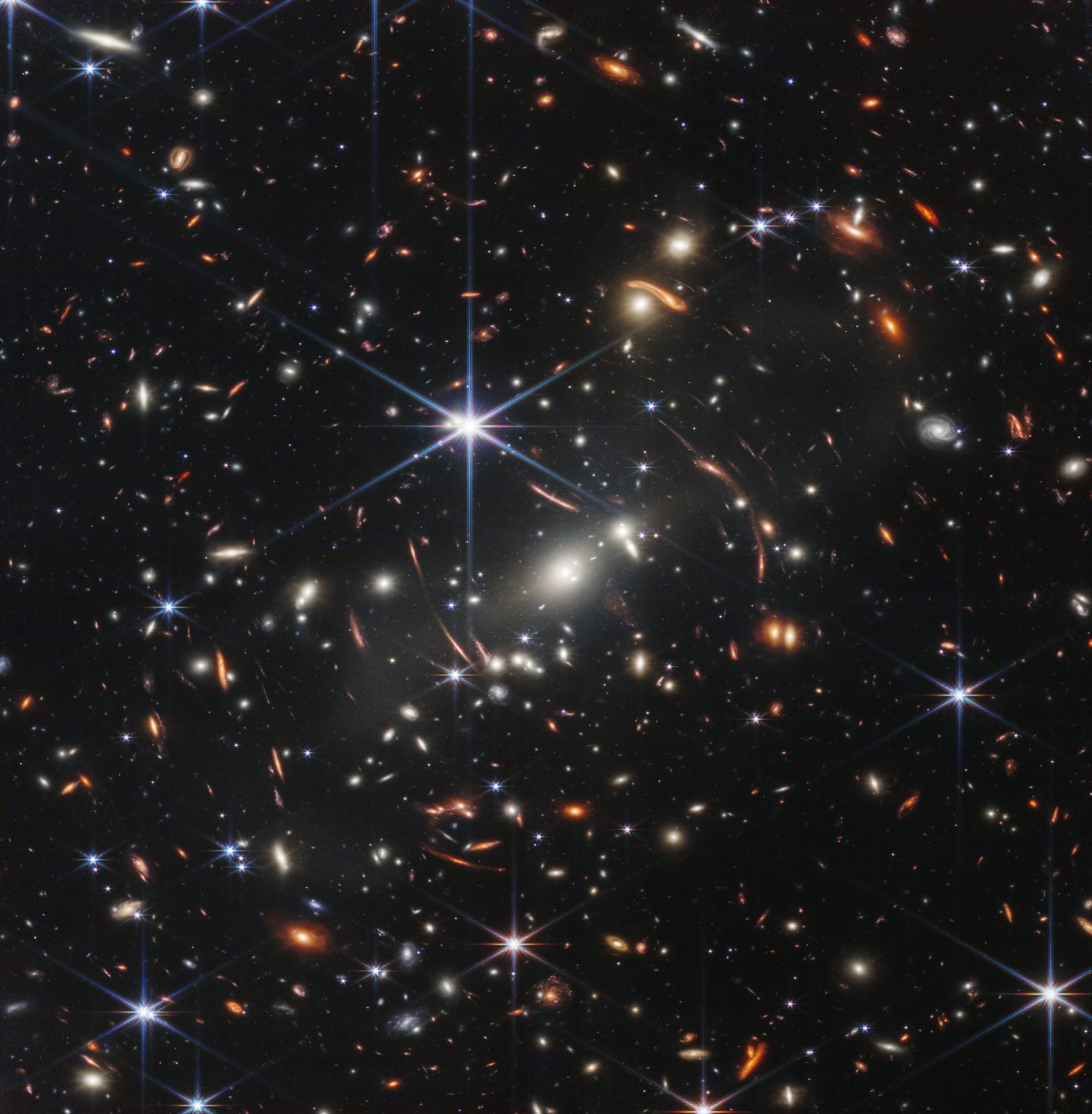


Stephen Meyer: Has the West Forgotten God?
In today’s ID the Future philosopher Stephen Meyer revisits Aleksandr Solzhenitsyn’s Templeton Prize speech from May 10, 1983, where Solzhenitsyn indicted the West for forgetting God. Meyer argues that Solzhenitsyn’s indictment is more timely than ever. But at the same time, there is today more scientific evidence than ever for the existence of a personal God, Meyer says, and the argument from intelligent design is a powerful means to awaken individuals to the presence of God and to renew culture. Meyer goes on to support those claims with concrete examples. Today’s episode is taken from a talk Dr. Meyer gave at the 2023 Dallas Conference on Science and Faith. Meyer is author of the bestselling book Return of the God Hypothesis: Three Scientific Discoveries that Reveal the Mind Behind the Universe.

Stephen Meyer: James Webb Telescope Supports the Big Bang
On this ID The Future, Return of the God Hypothesis author Stephen Meyer again speaks with radio host Michael Medved about the extraordinarily powerful new James Webb space telescope. One researcher, Eric Lerner, has claimed that what the Webb telescope is seeing many billions of light years away (and therefore, many billions of years in the past) undercuts the Big Bang theory. But according to Meyer, the new photographs coming back from Webb actually further confirm the reality that our universe had a beginning (“the Big Bang”) and that it has been expanding ever since. What these Webb images are forcing a rethink on, Meyer says, is the conventional wisdom among cosmologists on galaxy formation in the early universe. Meyer insists the evidence for a cosmic beginning is stronger than ever, as is the God hypothesis that it supports. Image from NASA.

Physicist Brian Miller Answers the Big Bang Evaders
On this ID the Future, physicist Brian Miller looks at various attempts to evade the mounting evidence that the universe had a beginning, a Big Bang. Miller and host Casey Luskin first review the fascinating history of how the eternal universe model of the nineteenth century gave way to the Big Bang model. Then Miller walks through about a half a dozen attempts to evade a cosmic beginning after the Big Bang model had won the day. These evasions include the steady state model, the idea of an eternal cyclical universe, and the string landscape model. According to this model, our universe exists in a multi-dimensional brane (not “brain”) which exists in a higher dimensional space, and our multi-dimensional brane can collide with other branes, with each collision creating a Big Bang moment, a process said to have been going on for all eternity. Miller then explains why each of these attempts to evade a true cosmic beginning fail, and he says that if matter, energy, and space came into existence at the moment of the Big Bang, then it follows that the cause of this cosmic beginning is something immaterial. And since the cosmic beginning was finely tuned in many astonishing ways, Miller says, the cause of the Big Bang has left the signature of intelligent design. The cause, then, is an intelligent, immaterial being and one, obviously, of unimaginable power. Miller and Luskin then touch on a final attempt to evade these implications, the idea that the universe could have popped into existence from nothing—no God, no anything. But as Miller shows, the proposals along these lines, offered by such physicists as Lawrence Krauss and Stephen Hawking, do not actually start from nothing. There is always a something at the ground state, a something whose origin is left unexplained. The occasion for the conversation is Miller’s essay in the recent Harvest House anthology, The Comprehensive Guide to Science and Faith: Exploring the Ultimate Questions About Life and the Cosmos.

Stephen Meyer and Skeptic Michael Shermer, Pt. 1
Today’s ID the Future spotlights the first part of a lively and cordial conversation between host and atheist Michael Shermer and Stephen Meyer, author of Return of the God Hypothesis: Three Scientific Discoveries That Reveal the Mind Behind the Universe. In this first of the four-part series, the two touch on everything from Meyer’s three key lines of evidence for theism to a quick flyover of less well-known materialistic origins theories, including the oscillating universe model, panspermia as an explanation for the origin of the first life on earth, and Stephen Hawking’s idea of imaginary time. Meyer lumps many of these ideas under what he terms exotic naturalism and suggests that the atheists who defend these explanations are multiplying exotic and unobserved entities to hold at bay a much simpler and more reasonable explanation for the evidence—namely, intelligent design. But is Meyer simply guilty of confirmation bias in arriving at his conclusion? Meyer turns the question around and suggests that it’s those who are wedded to methodological materialism who appear to be led by a confirmation bias. The interview is reposted here by permission of Michael Shermer.

Return of the God Hypothesis: Q&A with Stephen Meyer, Pt. 2
On today’s ID the Future Stephen Meyer continues fielding questions about his new book, Return of the God Hypothesis. The occasion was a live Zoom event for people who had pre-ordered the book. Daniel Reeves emceed, and here in the second part, Meyer rebuts the objection that intelligent design is an argument from ignorance. He also answers another objection, namely that our uniform experience with designing minds is that minds are embodied in material brains and yet Meyer seems to infer a non-embodied mind as the explanation for the design of life and the universe. Meyer also lists some prominent scientists who have either endorsed the book or championed key arguments in the book. Meyer is the Director of Discovery Institute’s Center for Science and Culture. Reeves is the CSC’s Director of Education and Outreach.

Physicist Eric Hedin: Cosmology Points to Cosmic Design
On this ID the Future host Eric Anderson continues his conversation with physicist and Canceled Science author Eric Hedin. Here Hedin argues that the dogmatic rule that natural science should only ever invoke natural causes has at its heart a logical problem. He and Anderson also review some startling cases of fine-tuning for life and why a “theory of everything” would not solve the fine-tuning problem for atheists but merely move it back to the theory of everything itself. Also in today’s conversation, a highly accessible flyover of how scientists came to realize that the universe wasn’t eternal but had had a beginning. Hedin also tackles a theological poser: If the universe was designed for life, why did the designer wait nine billion plus years to create the first life? It’s all material explored in Hedin’s new book, Canceled Science: What Some Atheists Don’t Want You to See, available at Amazon, Barnes & Noble and other online booksellers.